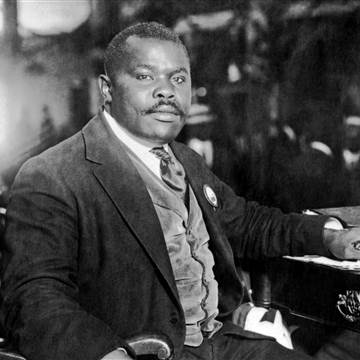
Marcus Garvey
This is a compiled PDF of Black radical activists
and philosophers' written texts in the last 150 years that worked for
liberation through direct action and political education.
Frances M. Beal, W.E.B. DuBois, Marcus Garvey, Martin Luther King Jr.,
Some are prominent leaders of the Pan-African movement, others are workers' groups
who fought against labor oppression affecting Black people most of all.
All have an impact we feel is more relevant than ever.
Disclaimer: The Black Panthers' action plans by Eldridge Cleaver are included.
So is commentary on his defection.
This is the table of contents, and excerpts from this works. Read the PDF here.
1.) Black Reconstruction, W.E.B. Du Bois (pg. 1-51)
2.) What Socialism Means to Us, Hubert Harrison (pg. 51-57)
3.) An Appeal to the Conscience of the Black Race to See Itself, Marcus Garvey
(pg. 57-62)

Marcus Garvey
4.) Program of the African Blood Brotherhood, The African Blood Brotherhood
(pg. 62-70)
"The only effective way to secure better conditions and steady employment in
America
is to organize the Negro’s labor power as indicated before into labor
organizations.
Every big organization develops certain property in the shape of
buildings, vacation farms, etc.
In prosperous times they may even develop
cooperative enterprises such as stores, etc.,
but
such enterprises must be cooperative
property of all members of the organization,
and administered by members elected
for the purpose.
Under no circumstances should such property be operated under
corporation titles written
over to a few individuals to be disposed of at their pleasure.
But experience has proven that such enterprises can only exist when the oppressed
class is well organized.
Without adequate organization an industrial crisis like the
present would sweep them off their feet." (pg. 67)
5.) "Report on the Negro Question," Claude McKay (pg. 70-74)
6.) "Application for Membership in the Communist Party", W.E.B. Du Bois (pg. 74-76)
7.) The Negro Nation, Harry Haywood (pg. 76-100)
8.) An End to the Neglect of the Problems of the Negro Woman! Claudia Jones
(pg. 100-116)
Claudia Jones VIDEO
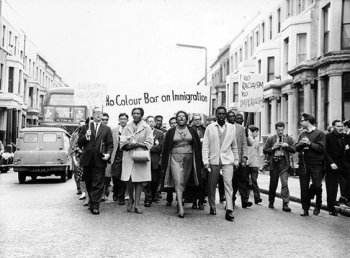
Claudia Jones protesting in London
9.) The Revolutionary Answer to the Negro Problem in U.S., C.L.R. James (pg. 116-136)
10.) "Revolutionary Nationalism and the Afro-American", Harold Cruse (pg. 136-153)
11.) Is the Black Bourgeoisie the Leader of the Black Liberation Movement?
Harry Haywood with Gwendolyn Midlo Hall (pg. 153-157)
12.) The American Revolution, James Boggs (pg. 157-219)
James Boggs VIDEO
13.) "Message to Grassroots", Malcolm X (pg. 219-230)
14.) The 12-Point Program of RAM, Revolutionary Action Movement (pg. 230-234)
"PURPOSES:
1. To educate the Afro-American to the economic, political, and cultural
basis
of the racial situation in the United States and the world.
2. To develop unity with Africans in the United States and the world.
3. To unite and organize Afro-American students to become active in the Afro-American Liberation Struggle.
These purposes would develop revolutionary cadres in the high schools, junior
high and colleges.
The climax of such a program would be the development of a
nationwide black student
school strike which would repudiate the educational system.
This strike would be over what black students are and are not taught.
ASM’s purpose
is to show black students that the only way to succeed in life is to cause a revolution
in this country.
ASM would develop groups around Black history, students’ rights,
and also
over conditions under which Afro-American students must operate." (pg.
230)
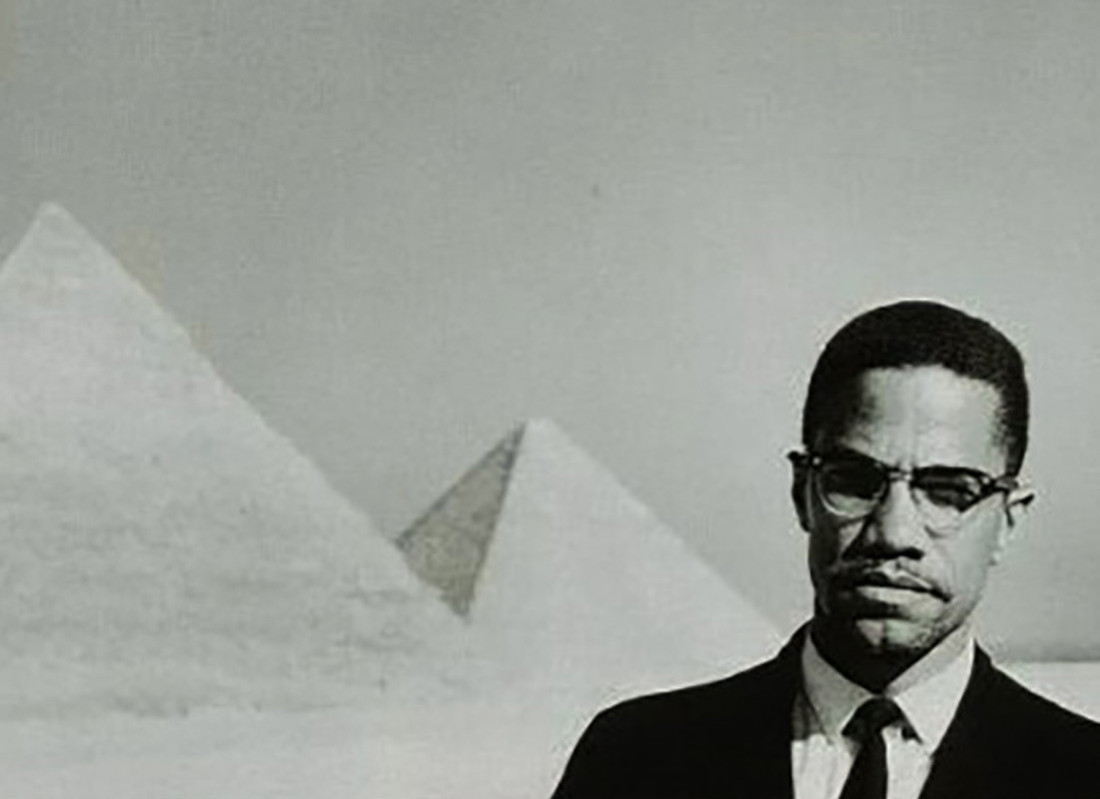
Malcolm X
15.) ""Speech in Beijing 234", Robert F. Williams (pg. 234-242)
16.) Black Power, Stokely Carmichael (pg. 242-257)
17.)
"Beyond Vietnam" VIDEO , Martin Luther King, Jr. (pg. 257-271)
18.) The Pitfalls of National Consciousness, Frantz Fanon (pg. 271-308)
19.) "The Correct Handling of a Revolution", Huey P. Newton (pg. 308-312)
20.) "Power Anywhere Where There's People", Fred Hampton (pg. 312-320)
21.) "On the Ideology of the Black Panther Party", Eldridge Cleaver (pg. 320-329)
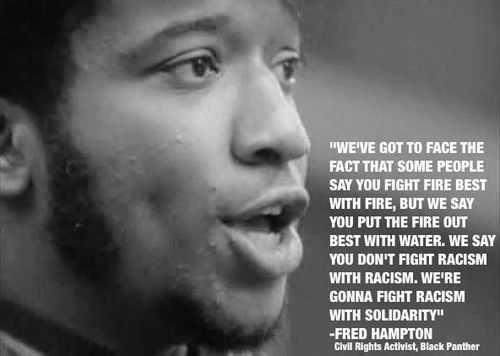
22.) "On the Defection of Eldridge Cleaver...", Huey P. Newton (pg. 329-336)
"Our programs would be meaningless and insignificant if they were
not community programs.
This is why it is my opinion that as long as the Black
community and oppressed people are
found in North America, the Black Panther
Party will last.
The Party will survive as a structured vehicle, because it serves the true
interests of oppressed
people and administers to their needs—this was the original
vision of the Party.
The original vision was not structured by rhetoric nor by ideology.
It was structured by the practical needs of the people, and its dreamers were armed
with
an ideology which provided a systematic method of analysis of how best to meet
those needs.
...When we formed the Party, we did so because we wanted to put theory and
practice together, in a systematic manner.
We did this through our basic Ten Point
Program. In actuality it was a 20-Point Program,
with the practice expressed in “What
We Want” and the theory expressed in “What We Believe.”
This program was
designed to serve as a basis for a structured political vehicle.
The actions we engaged in at that time were strictly strategic actions, for
political purposes.
They were designed to mobilize the community.
Any action which
does not mobilize the community
toward the goal is not a revolutionary action. The
action might be a marvelous statement of courage,
but if it does not mobilize the
people toward the goal of a higher manifestation
of freedom, it is not making a
political statement and could even be counter-revolutionary."
(pg. 329-330)
23.) Prison Letters, George Jackson (pg. 336-360)
24.) White Blindspot, Noel Ignatin (pg. 360-373)
25.) Without a Science of Navigation, We Cannot Sail in Stormy Seas, Noel Ignatin
(pg. 373-395)
26.) Liberation Will Come from a Black Thing, James Forman (pg. 395-407)
27.) "General Program (Here’s Where We’re Coming From)", League of
Revolutionary Black Workers (pg. 407-411)
28.) "From Repression to Revolution, Ken Cockrel (pg. 411-420)
29.) Black Women's Manifesto: To Be Black and Female, Frances M.
Beal (pg. 420-431)
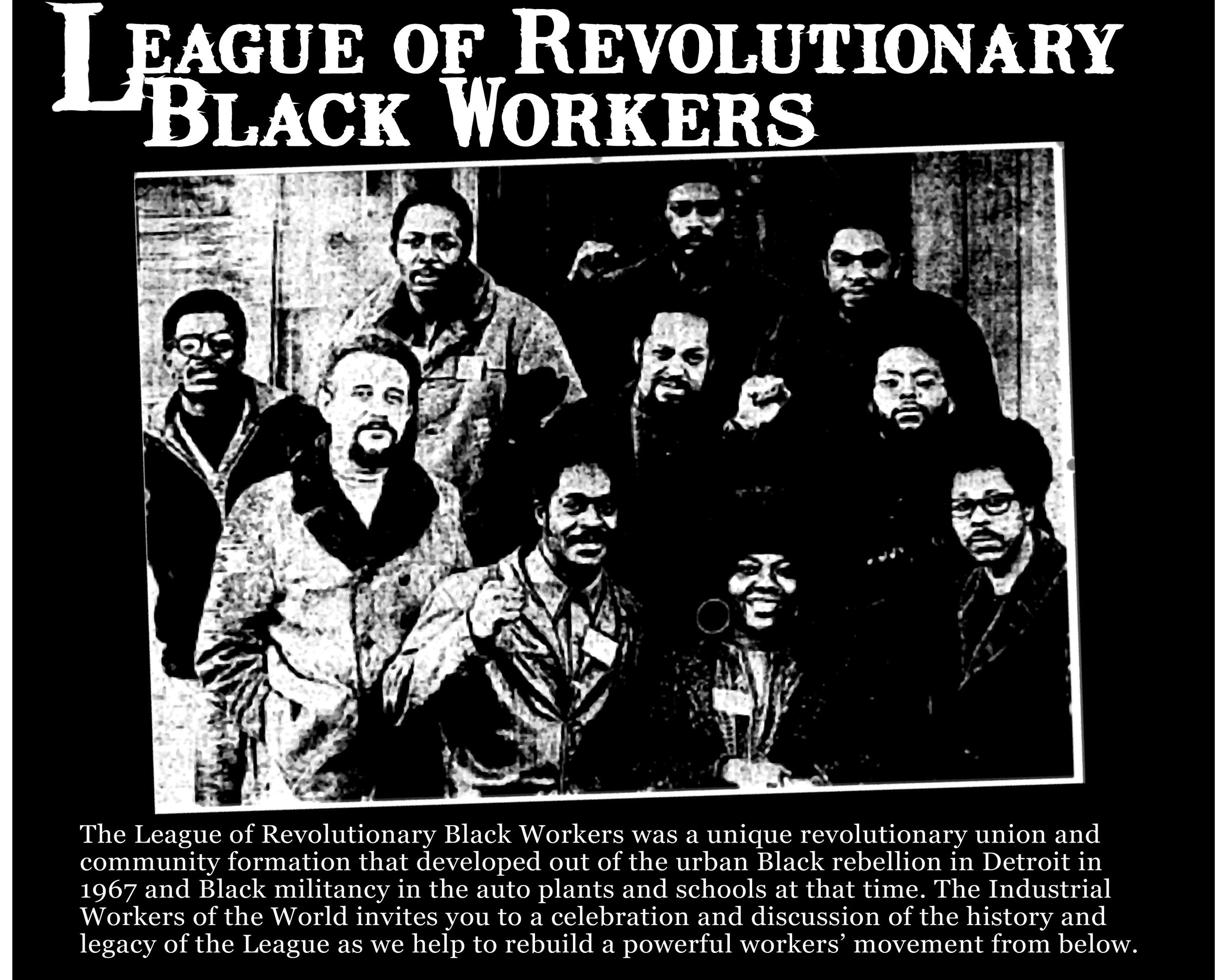
30.) Reflections on the Black Woman’s Role in the Community of Slaves,
Angela Davis (pg. 431-449)
31.) The Combahee River Collective Statement, Combahee River Collective
(pg, 449-458)
"Issues and projects that collective members have actually worked on are
sterilization abuse, abortion rights, battered women, rape and health care.
We have
also done many workshops and educationals on Black feminism
on college campuses,
at women's conferences, and most recently for high school women.
One issue that is of major concern to us and that we have begun to publicly
address is racism in the white women's movement.
As Black feminists we are made
constantly and painfully aware of how little effort white women
have made to
understand and combat their racism, which requires among other things that
they
have a more than superficial comprehension of race, color, and Black history and
culture.
Eliminating racism in the white women's movement is by definition work for
457
white women to do,
but we will continue to speak to and demand accountability on
this issue.
In the practice of our politics we do not believe that the end always justifies the
means.
Many reactionary and destructive acts have been done in the name of
achieving "correct" political goals.
As feminists we do not want to mess over people in
the name of politics.
We believe in collective process and a nonhierarchical
distribution of power
within our own group and in our vision of a revolutionary
society." (pg. 449-451)
32.) Negro National Colonial Question, Communist League (pg. 458-497)
33.) Critique of the Black Nation Thesis, Racism Research Project (pg. 497-522)
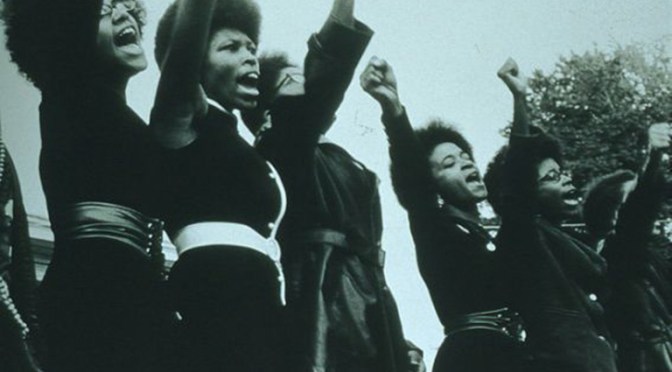
Combahee River Collective
34.) "Revolutionary Review: The Black Nation Thesis", Congress of African People
(pg. 522-526)
35.) National Liberation of Puerto Rico & Responsibilities of U.S. Proletariat,
Puerto Rican Revolutionary Workers (pg. 526-538)
36.) "Revolution, the National Question and Asian American", I Wor Kuen
(pg. 538-546)
37.) Chicano Liberation and Proletarian Revolution, August Twenty-Ninth Movement
(pg. 546- )